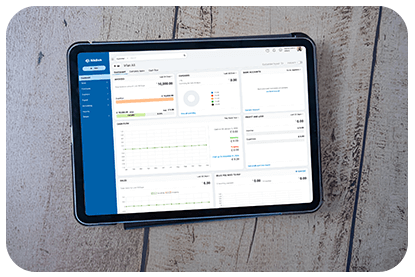19 April 2024
Financial Express: Fast-Track Your Path to Financial Success
Achieving financial success doesn’t have to be a long, difficult journey. With the right approach and strategies, you can fast-track your way to financial express. Whether you’re starting from scratch or looking to optimize your existing financial plan, the key lies in taking focused, intentional steps. In this blog post, we’ll explore practical tips and strategies to help you fast-track your path to financial success.
1. Start with a Solid Financial Foundation
Building wealth starts with a strong foundation. Before diving into investments or advanced strategies, focus on managing your daily finances. Create a budget to track your income and expenses. Knowing where your money goes each month is essential for cutting out unnecessary spending and redirecting those funds toward your goals.
A solid financial foundation also includes building an emergency fund. Aim to save at least 3 to 6 months’ worth of living expenses in an easily accessible account. This cushion will provide peace of mind in case of unexpected financial setbacks and allow you to stay on track with your financial goals.
2. Master the Art of Budgeting
Budgeting is an essential skill in achieving financial success. Without a clear budget, it’s easy to overspend or lose track of your goals. Start by breaking your monthly income into categories: essentials (like housing, utilities, and groceries), discretionary spending (entertainment, dining out), and savings.
The 50/30/20 rule is a popular budgeting method: 50% of your income should go to essentials, 30% to discretionary expenses, and 20% to savings and debt repayment. By sticking to a budget, you can avoid living paycheck to paycheck and begin building wealth over time.
3. Manage Debt Wisely
Debt can be a major obstacle to financial success, but learning how to manage it effectively will help you move forward faster. High-interest debt, such as credit card balances, should be paid off first. Once those debts are cleared, focus on lower-interest loans like student loans or mortgages.
Consider using the debt snowball method, where you pay off your smallest debts first and work your way up. This approach provides quick wins, which can motivate you to tackle larger debts. Alternatively, the debt avalanche method focuses on paying off the highest-interest debt first, saving you money on interest in the long run.
4. Start Investing Early
Investing is one of the most effective ways to grow your wealth, but it’s important to start early. The sooner you begin, the more time your money has to grow through compound interest. Start with low-risk investments like index funds or exchange-traded funds (ETFs), which provide broad market exposure and help reduce risk.
As you become more comfortable with investing, you can explore other options such as individual stocks, bonds, or real estate. Diversification is key to minimizing risk, so always aim to spread your investments across different assets.
5. Plan for Retirement
It’s never too early to start planning for retirement. Contributing to retirement accounts like a 401(k) or IRA can help you accumulate wealth over time. These accounts also offer tax advantages, allowing your investments to grow without being taxed until you withdraw the funds.
To fast-track your retirement savings, try to contribute as much as possible to these accounts, especially if your employer offers a matching contribution. Take advantage of this “free money” to maximize your retirement funds.
6. Focus on Continuous Education
Financial success requires ongoing learning and adaptation. Stay informed about new financial tools, market trends, and investment opportunities by reading books, attending workshops, or listening to financial podcasts.
Financial education will help you make smarter decisions, whether you’re managing debt, choosing investments, or planning for retirement. The more you know, the more confident and capable you’ll be in your financial journey.
7. Set Clear Financial Goals
Setting specific, measurable financial goals is essential for tracking your progress and staying focused. Whether you want to buy a home, pay off debt, or save for retirement, clearly defined goals will help you stay motivated and on track.
Break your long-term goals into smaller, manageable steps. For example, if your goal is to save for a down payment on a house, create a plan for how much you need to save each month to reach that target within your desired time frame.
8. Take Advantage of Tax-Saving Strategies
Taxes can significantly impact your wealth-building efforts, but with the right strategies, you can minimize their effect. Contribute to tax-advantaged accounts like IRAs or 401(k)s, which allow you to defer taxes until retirement. Additionally, take advantage of tax deductions and credits that may apply to your situation, such as those for education expenses or mortgage interest.
Being tax-efficient can help you keep more of your hard-earned money and put it toward your financial goals.
9. Seek Professional Advice When Needed
While you can achieve financial success on your own, sometimes it’s beneficial to seek advice from a financial advisor. A professional can help you create a customized plan for managing your money, investing, and planning for retirement.
A financial advisor can also assist with tax planning and risk management, ensuring that you’re making the best choices for your unique financial situation. While there may be fees associated with hiring an advisor, the guidance they provide can be well worth the investment.
10. Stay Disciplined and Patient
Financial success is not an overnight achievement—it’s a long-term process that requires discipline, patience, and persistence. Stick to your budget, stay committed to your goals, and don’t get discouraged by setbacks. Remember, consistency is key to building lasting wealth.
Conclusion
Fast-tracking your financial success is entirely possible with the right strategies in place. By focusing on budgeting, managing debt, investing early, and planning for retirement, you can build a strong financial foundation. Keep educating yourself, set clear goals, and stay disciplined in your efforts. Over time, these steps will help you achieve financial independence and secure a brighter future for yourself and your family.




